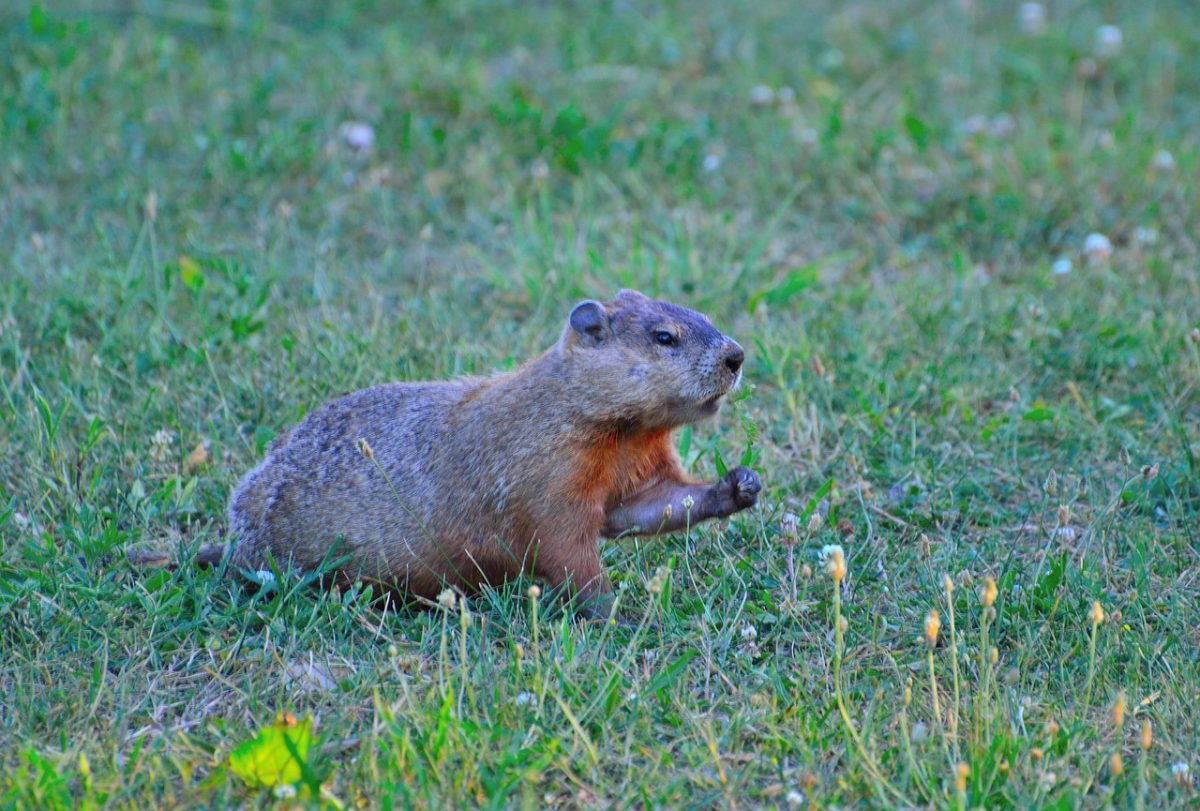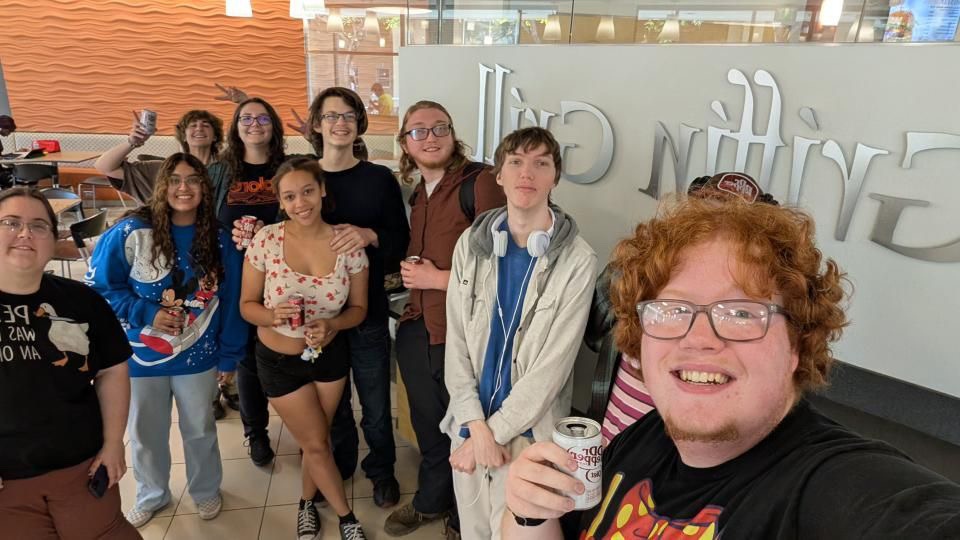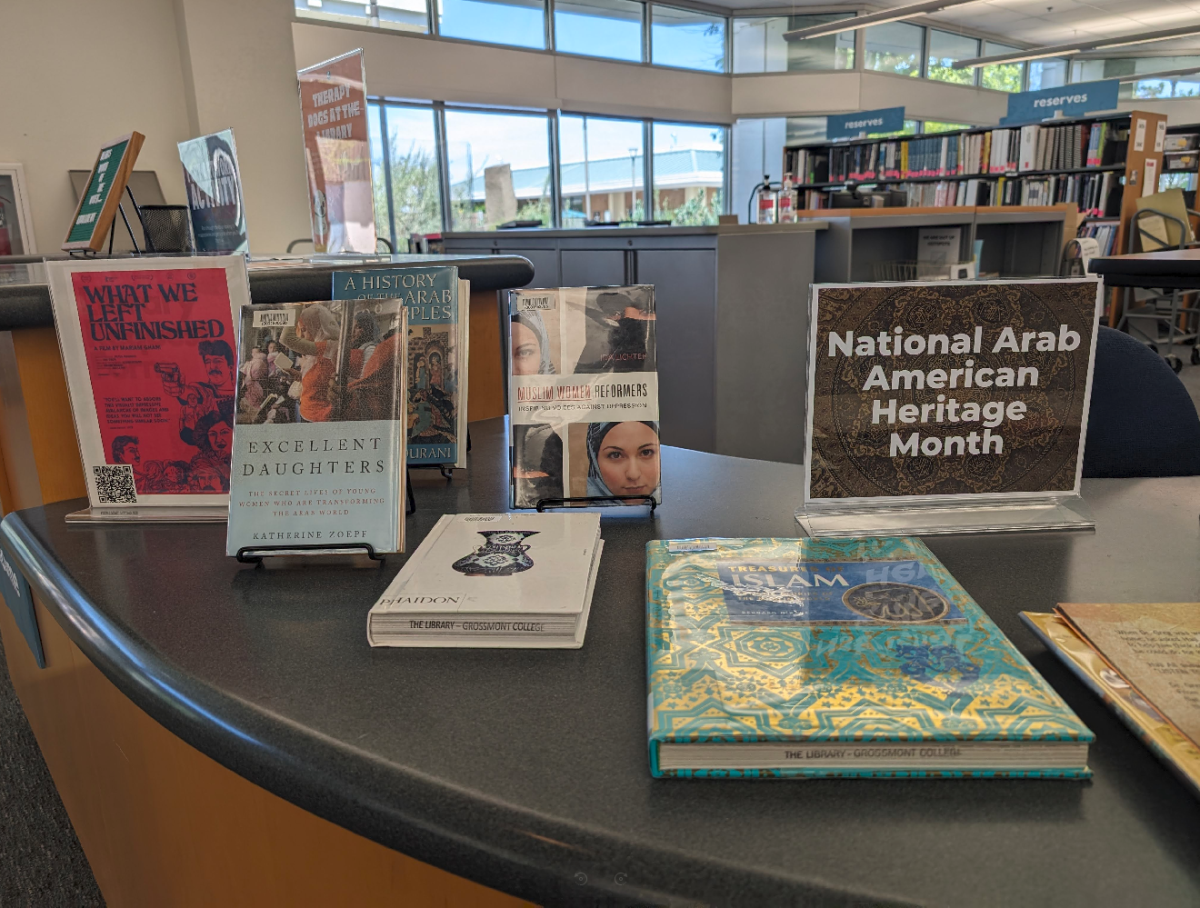Editor’s Note: The following stories, reprinted from the Summit magazine, tell about holiday customs observed by members of the Grossmont College community. In this magazine-length article, we look at Christmas, Chanukah, Eid, Kwanzaa, Yalda, Holiday Travel, New Year’s in Turkey, and Football Bowl games.
CHRISTMAS (Christian)
Throughout the world many different cultures and countries celebrate Christmas in their own ways, including events, services and origins. Christmas focuses on the birth of Jesus Christ, Christianity’s foremost figure. However, other non-Christian societies choose to celebrate the day as well.
There are many different opinions on why Christmas is celebrated on the 25th of December, some of which involve ancient Roman dates revolving around the winter solstice. Biblical texts have no specifically assigned a date for the birth of Christ, yet in the early 4th century the Roman Church declared the 25th of December as Christ’s mass. That date began as a day of atonement.
While Christmas mass originally took place at midnight, congregations over generations have become more lenient with the tradition as families tend to put their children in bed before that time. Churches have complied to the change by holding mass at an earlier time in the evening.
The tradition of gift giving is a tale of the past, one of generosity and harmony. As a man born into a rich Greek Christian family, Nicholas was a very religious man. Having lost his parents at a youthful age, he was taken into care by his uncle, Nicholas the Bishop. Growing up in the church, young Nicholas became a man of faith himself. During his travels he assisted families in need and even slipped gifts of money inside peoples shoes and stockings that they had left outside.
Through his constant good deeds, he became revered by the public and poems were written about doing good deeds so that Saint Nicholas will stop by and give a festive treat. Over time, western culture adopted gift giving and other modern trappings of Christmas, renaming Saint Nicholas as Santa Claus.
In today’s generation, not all families who mark Christmas are highly religious, but use it as a time to celebrate and start anew. Since the winter holidays come close together, the entire fourth quarter can be considered a time of happiness.
Christmas is a time of joy, a time of giving thanks, a time of abolishing sin and being with family. Traditional families attempt to spend time with one another as it may be the only time of the year relatives can be together. Being able to see family can be enough of a tradition to supply happy thoughts and keep them content for another year.
Decorations can be found all over the world, expressive light systems synchronized to caroling tunes have become common in the United States. Simpler traditions are infrequent compared to the Christmas tree in the living room or a wreath hanging on a door. Including the ones you love in a tradition can make it that much more enjoyable.
Tasha Noonkester tells her children, “imagine you have all the money in the world” before handing them magazines full of holiday gifts. After cutting out different items, the family puts the clipped items inside envelopes designated for the family member they would purchase it for. On Christmas Eve, the family then gathers around and exchange envelopes. Noonkester commented, “it’s pretty funny to see what they would buy for their siblings and parents.”
Joy Marie and her family have the tradition of choosing an item that has been significant to them over the year. They then write the year on the item and use it as an ornament. Joy mentioned, “before each gets put up we tell the story about why that particular ornament was chosen.”
While certain traditions may be as simple as a ham or turkey dinner, drinking eggnog or just being with those you love, there is no denying that the Christmas spirit is out there.
Jeitler is features editor of the GC Summit
[email protected]
***
CHANUKAH (Jewish)
By Kellen Brauer
Every winter, Jewish people across America have a celebration known as Chanukah with unique games and food to add to the festivities.
Media Communications 132 instructor Donald Harrison is one of those people that gather with his family for the eight-day celebration in which they light the candles of the menorah and play dreidel.
“It’s (Chanukah) our way of having a gift- giving holiday and staying true to our religion,” said Harrison. “Instead of getting all of your gifts at once like Christmas, you get one each night of Chanukah.”
“Ancient Israel was occupied by Hellenists who wanted to bring their religion to Israel. They required the Jews of the time to worship the Greek gods and installed idols of their gods into the Great Temple,” said Harrison. “Of course the Jews were very upset and the group that revolted were known as the Maccabees. They were led by Judah Maccabee.
“Somehow, this small group was able to throw off the rule of the Greeks, then they went to the Temple to get rid of the idols that the Greeks had put in,” continued Harrison. “They then lit their eternal flame and it looked like there was only going to be enough oil to last for one day. It was going to be eight days before they could come back and when they came back and it was still burning so they considered it a miracle.”
“So Chanukah was a military victory but the rabbis didn’t want to celebrate military victories. So the story of the miracle that happened that kept the oil burning for eight days became the central religious theme in the story of the restoration of the temple,” continued Harrison. “And so to remember that we have an eight-branched menorah (with a ninth branch for a candle for lighting all the others).”
It is also customary during Chanukah that the Jews play a game called dreidel in which they spin a four-sided top. “The Dreidel has four Hebrew letters, and depending on which letter you land on, that’s how much you win,” explained Harrison.
The four Hebrew letters, representing the saying “a great miracle happened there” are nun, gimmel, hei and shin, which mean respectively that you get nothing, all, half or have to put in coins respectively, according to chabad.com.
Chanukah also has its selection of unique foods to go along with the tradition.
“Because this is a celebration about oil, we make some foods using cooking oil,” said Harrison. “One of which is potato pancakes which we call latkes and traditionally, people will fry up the Latkes and eat them with apple sauce or sour cream.”
Harrison spends Chanukah with his father-in-law, wife, children and grandchildren and describes Chanukah as more of a “nuclear family holiday.”
“When I was younger, it was sort of like the cool holiday because you got presents,” said Harrison. “But as I got older, it was more important to me to carry on the tradition with my children.”
Brauer is news editor of the GC Summit. He can be contacted at [email protected]
***
EID (Muslim)
By David Hurst
Eid is a Muslim Holiday celebrated twice over the course of a Gregorian 12 month calendar year. It falls on the same day of the Islamic calendar which is lunar, as opposed to the solar Gregorian calendar. Eid ul-Fitr falls after fasting during Ramadan. There is also Eid ad Adha, or Great Eid, which comes after the pilgrimage to Mecca. Eid ad Adha fell on November 6th.
Mohammed Moustafa, a lead tutor at the Grossmont tech mall, said, “Out here in San Diego we have a big Muslim community with a lot of mosques. We gathered at the convention center at the Double Tree Hotel in Mission Beach. A lot of families came and a lot of kids had fun. There is a lot of food and a lot of amusement. …The people dress in their best clothes…”
Moustafa as well as Grossmont students Sally and Suaseul, Muslim sisters from Iran who did not give their last name, spoke of the importance of the Sunnah of Eid, which is the first prayer before the ceremony.
In countries that have a majority Muslim population Eid is a four-day event. That is not the case for most Muslims celebrating Eid in the United States where four days off of work can leave you without a job, or with a bad grade. “ Moustafa said that in his native country, Iraq, that all four days are just like the first day is celebrated stateside. “Back home it’s an open invitation to visit family (over the course of four days); we take those four days off.”
Gifts are also a part of Eid. Sally said it is important that “You find poor people and give them money or help them out in any way that you can.” Eid usually includes a big feast. Eid ul Fitr usually features Sheer Khurma, a dish made of saviyaan, a local long form of pasta with dates cooked in milk. During Eid ad Adha , Quorma, a type of curry, is usually served. Kabobs are also served at both celebrations.
According to Islamic tradition, Eid began when Abraham had a dream that he should sacrifice his son Ishmael to show his obedience to God. God then intervened so that instead of sacrificing his son Abraham sacrificed a sheep. The food from the sheep was distributed to the poor people.
Hurst is managing editor of the GC Summit. He may be contacted at [email protected]
***
KWANZAA (Pan-African)
By Nicolle Fedor
As the end of the fall semester approaches, many holiday festivities are just starting , but one such holiday is not religiously based.
During the Black Freedom Movement of the 1960’s, Dr. Maulana Karenga, an educated, passionate and self-determined activist, arose as a great pioneer within the African-American, and later Pan-African, community.
After years of intense studying in the field of African ethics in Ancient Egypt coupled with theories in nationalism, Dr. Karenga began his mission to give back to the African and Pan-African community both nationally and internationally.
According to Dr. Karenga’s website, the main focus of Kwanzaa, meaning “first fruit” in Swahili, is to “give Blacks an alternative to the existing holiday and give Blacks an opportunity to celebrate themselves and history, rather than simply imitate the practice of the dominant society.”
As opposed to religion, Kwanzaa “is a communitarian African philosophy” that celebrates the deeply rooted African values in community, culture and family for seven days.
Each of the days represent one ofeven Principles of African-ness, meaning Nguzo Saba in Swahili, by which Dr. Karenga adopts his doctrine.
Each day the Swahili greeting “Habari gani?” is said, and the correct response is the represented Principle honored that day.
The official Kwanzaa website states that The 7 Principles of African-ness are:
▪ Umoja (unity)—To strive for and maintain unity in the family, community, nation, and race.
▪ Kujichagulia (self-determination)—To define ourselves, name ourselves, create for ourselves, and speak for ourselves.
▪ Ujima (collective work and responsibility)—To build and maintain our community together and make our brother’s and sister’s problems our problems and to solve them together.
▪ Ujamaa (cooperative economics)—To build and maintain our own stores, shops, and other businesses and to profit from them together.
▪ Nia (purpose)—To make our collective vocation the building and development of our community in order to restore our people to their traditional greatness.
▪ Kuumba (creativity)—To do always as much as we can, in the way we can, in order to leave our community more beautiful and beneficial than we inherited it.
▪ Imani (faith)—To believe with all our heart in our people, our parents, our teachers, our leaders, and the righteousness and victory of our struggle.
For more information visit www.OfficialKwanzaaWebsite.org
***
YALDA (Iran)
By Dylan Burke
Yalda is celebrated on the Northern Hemisphere’s longest night of the year. Depending on the shift of the calendar, Yalda is celebrated on or around December 20 or 21 each year.
In Iran, foods common to the Yalda celebration include watermelon, pomegranate, nuts, and dried fruit. The Eve of the Yalda has great significance in the Persian/Iranian calendar. For Ancient Persians the Sun God symbolized light, goodness and strength on earth. Yalda is a time of joy.
Media Commm Prof. Michael Emami recalls one year his father came home with watermelon for Yalda, but “it was very cold that night” and all the juice and meat in the melon had been destroyed. Nevertheless, “we didn’t let that spoil our night. My father said the hell with it as we roasted the seeds and spread limejuice and ate the inside, I’ll remember that night for the rest of my life.”
Here in San Diego at Sufi Restaurant there will be a celebration on Dec. 16 for the Yalda Holiday
Burke is a student in Media Comm132
[email protected]
***
HOLIDAY TRAVEL (US)
By Jessyka Holguin
Everyone looks forward to this time of year. It’s that time to travel, to visit our family and friends. It’s that time when you have to figure out what you’re going to get that aunt who you see once a year. It’s that day you have to spend five hours in the car with all five of your family members.
But don’t worry. Even though it’s the busiest time of the year for traveling. Everyone else has to go through it too. So you’re not alone!
Many students told the GC Summit that they spend their holidays in the Los Angeles area. Gregory Mejita , for example, is traveling by car with his family for the holidays. Nelly Mercado says she’ll be spending her holiday snowboarding in Big Bear and Mammoth. Emily Tretaneir said snowboarding in Colorado or Utah is an annual tradition for her family.
Among others traveling outside California is Nikki Rowlands. Her father lives in Honolulu, Hawaii. So she gets to spend her Christmas on “the beach” every year!
For other students, winter break means work not travel.
Rhiannon Burton said she will be spending most of her time working in the candle shop in Parkway Plaza, so one of the aromas of the holidays will be all around her.
Daniel Arthur and his family take advantage every year of the offerings in Southern California. He and his family expect to join his Coloradoan grandparents at the Hotel Del Coronado. Similarly, Jesse Kendrik is planning with friends to take a boat for a first-time Catalina visit.
Holguin is a student in Media Comm 132
[email protected]
**
NEW YEAR (Turkey)
By Issac Jeitler
New Year’s in Turkey is quite possibly the most celebrated holiday of their year, according to Elif Kizil, an international student from Turkey.
Many traditions for a Turkish New Year have been adopted from other countries and the day is celebrated with many other traditional customs all at once. Yes, eating turkey is popular in Turkey, and celebrating around giant pine trees associate the festivities with a delightful aroma.
While it is prohibited by the Islamic religion to drink intoxicating beverages, many Turkish people nevertheless partake in the celebration by drinking.
Kizil is studying English as a second language here at Grossmont College. She previously earned a degree in photography in Turkey then came to the states to further her studies. Her aspirations for being a photographer have no bounds; she is rarely without her camera affixed to her hip. She has been visiting schools in San Francisco and New York to decide where to earn a Master’s Degree in Photography. New Year’s will be a time when Elif plans to be back home to Turkey to relax with her friends and family. “I have been in Turkey for twenty-four New Year’s celebrations,” she declared. She said she enjoys being with her loved ones, listening to the live celebratory music and cheering along with others around the world when the count-downs to New Year’s begin. Happy New Year! – “Yeni yilin kutlu olsun!”
Jeitler is features editor of the GC Summit
**
FOOTBALL BOWLS (US)
By Dylan Burke
The holiday season is coming yet again. Can the days of mega-football games like the Rose Bowl and the Super Bowl be considered to be winter “holidays” like winter’s various religious observances?
For many Americans, the argument can be made that Super Bowl Sunday is a holiday. In fact, according to USDA, millions of Americans mark Super Bowl Sunday with friends and family, making it the second highest day of food consumption in the United States after Thanksgiving.
Almost always, the most watched television event or episode in the world ever year is the Super Bowl, and even many workers in the restaurants and stores ask for the day off to the point where the general manager will close the store early to give his or her employees their opportunity to watch the game.
However, Grossmont’s Athletic Director Jim Spillers says he doesn’t spend much of his time watching the sports events during the holiday season, explaining: “I get 98% of my sports fulfillment through my every day.”
Randy Abshier, the Griffins baseball coach, says the Bowl games aren’t that big a deal for him. Afterall, he noted, he’s “a baseball coach, I like baseball.”
In my own experience Souplantation/Sweet Tomatoes is closed for Thanksgiving and also Christmas, however no other winter holidays–not even New Year’s Day or Super Bowl Sunday–are specified as days so special there’s no point in even opening.
The Bowl games are welcome forms of entertainment for Americans who are alone for the season or have little attachment to their families.
The Rose Bowl is nicknamed “The Granddaddy of Them All” because it is the oldest bowl game. Traditionally this game is played on January 1, New Year’s Day–except when New Year’s begins on a Sunday, and then the game is played on Monday.
No matter which teams are competing, some people like to watch Bowl games on television while recuperating from partying the night before. The Super Bowl has the added attraction of offering funny commercials.
So are Bowl games holidays? Clearly that depends on who you ask. If they’re not actual holidays, they certainly feel like them. Family and friends are together, there is plenty of food to eat, there is happiness shared by everyone and for most people they’re enjoyable.
Burke is sports editor of the GC Summit
[email protected]
*
All the writers of the articles above are students in Media Comm 132.







